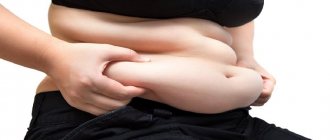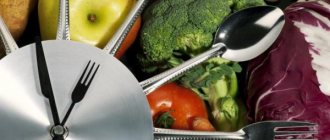Sedentary lifestyle
Prolonged sitting, standing, or lying in one place does not stimulate the muscles of the body and does not cause them to contract frequently. Quiet muscles do not drive blood through the veins and metabolism, along with blood circulation, slows down.
A muscle in a relaxed state allows only 25-50 capillaries per 1 square millimeter of flesh to pass through it. And a muscle that periodically experiences stress can pass up to 3000 capillaries per 1 square millimeter. Due to a sedentary lifestyle, on average, about 40% of the blood does not circulate properly and stagnates.
Calorie restriction
Numerous studies on mice and monkeys have found that the most important thing is to reduce the total calorie content of the entire diet, and not its individual elements. In 1934, Cornell University researchers Mary Crowell and Clive McKay showed in mice that an overall reduction in dietary energy increased the average and maximum lifespan of the test group by 30 to 50 percent. This discovery renewed the race to find the recipe for the elixir of eternal youth.
But no individual elements, the reduction of calorie content of which will significantly accelerate the normalization of metabolism, were identified during the research.
How not to gain weight?
— Why do people often gain excess weight during fasting? Is it all about changing the menu, or is the reason purely psychological in nature - for example, a person is afraid that he won’t get enough and tries to eat more?
“This is due to a change in the structure of the diet. The fact is that our feeling of fullness is mostly provided by protein and fatty foods, but during fasting a person eats more carbohydrates - bread, cereals, potatoes. Those who fast often try to use sweet sauces and some kind of Lenten desserts. Carbohydrates are substances that stimulate the release of insulin, and this hormone stimulates appetite.
As a result, a person eats too many carbohydrates, “overeats” the total number of calories, and those carbohydrates that were not spent on physical and mental work begin to be stored in the body as fat.
True, there are such happy people whose body itself feels while eating when it has received enough calories, and at that moment they feel full. However, most people do not have such restrictions, and they inevitably eat more than they need.
— It happens that during fasting a person periodically experiences a loss of strength, and nuts and dried fruits, which quickly restore strength, are not useful for everyone...
— Loss of strength should not normally occur in a person during such periods. But if there are too many carbohydrates in food, then a person produces a lot of insulin, and in some people this causes a decrease in blood sugar, which can provoke a feeling of weakness. In this case, you can advise eating less sweets. Anyone who suffers from low blood pressure can experience a similar feeling. During this period, a hypotensive person just needs to drink coffee.
Muscle growth
Do you constantly exercise and practice a balanced diet, but the extra pounds still don’t go away? Most likely, you are an endomorph. An endomorph is one of three body types, which is characterized by increased body fat, short or average height, large bones and wide hips. A person with an endomorph body type needs much more physical activity to lose excess weight. But, muscle mass with such a physique is gained much faster. Therefore, fat consumption and muscle growth can fluctuate around the same weight range.
Why can't I lose weight?
The reasons may vary. For example, an attempt to lose excess weight through a strict diet can lead to the body deciding that “hunger times” have come and starting to “stock up.” When planning a diet, it is important to take into account a number of factors: not only the quantity of calories consumed, but also their quality, the regularity of meals, the distribution of calorie content throughout the day, and much more. But the main thing is to understand the main task: you need to change your eating habits, and not muster your will for a limited period of time, and then return to your usual diet. The same is true for physical activity: regular moderate exercise sets will have a better effect in the long term than rare trips to the gym for grueling workouts. Another possible reason for failure in the fight against excess weight may be an incorrectly chosen “battlefield”: weight gain can often be triggered not only and not so much by overeating and lack of physical activity, but by the body’s natural hormonal response to stress. In the modern world, chronic stress has become the norm of life, while the human body has remained virtually unchanged evolutionarily. Physiological responses to stress did not change either. To survive in a stressful situation, you need energy; its production and accumulation are regulated by certain hormones produced in the body. In addition to the increased production of stress hormones, other hormonal imbalances can also lead to difficulties in losing excess weight.
Wrong food intake
In a person’s diet, both the diet and the balance of nutrients can go wrong: - It’s enough to eat fast food and it will clog the body with sugar, toxins and fats. And in a littered environment, metabolism is disrupted and every extra kilogram increases the load on the cardiovascular system.
— Wrong eating is considered to be eating once or twice a day, as well as eating food earlier than two hours before bedtime.
— When choosing a diet, you should keep in mind that the best solution is always in the middle. Throwing from one extreme to another, from overeating directly to a strict diet, is very harmful to health and causes gastrointestinal diseases.
— Lack of fat has a bad effect on the condition of teeth and bone strength. Fats are necessary for the absorption of vitamin D. The use of drugs and supplements that accelerate the breakdown of fats is recommended to be combined with calcium intake.
— An overdose of drugs that reduce appetite, especially in combination with “dry” fasting, leads to disruption of the water-salt balance in the body, which greatly affects the kidneys and liver.
— A diet that lacks proteins can lead to disruption of water-salt metabolism in the body. Proteins are actively involved in removing excess fluid from the body, and their lack leads to the accumulation of water and swelling.
- Using only one diet to lose weight can cause the extra pounds to come back again. This is usually caused by stress from sudden weight loss and hormonal imbalance. To avoid such problems, a weight loss course should combine different approaches: both diet and exercise.
You're misjudging your progress
Burning fat deposits is a rather long process. If you've been on the diet for less than two weeks, it's too early to report any progress.
Svetlana Nezvanova
Weight loss occurs in waves, and this process is individual. For some people, weight does not change in the first two weeks and only then begins to decrease along with volume.
Moreover, the scale does not always show real progress in losing weight. Body weight can be affected by muscle gain or water retention, for example during menstruation. As a result, fat deposits will melt, but the scales will not show this.
Currently reading










